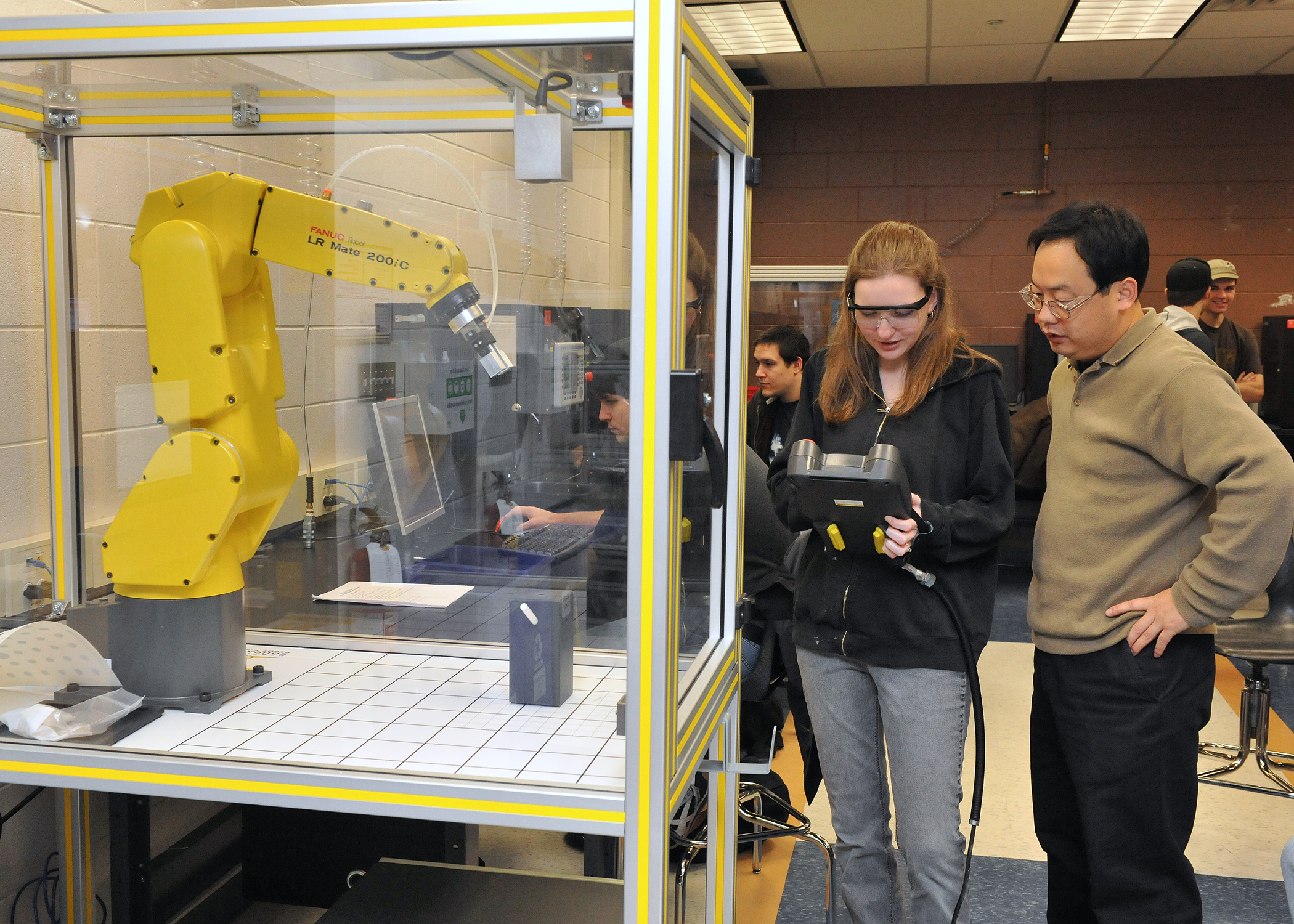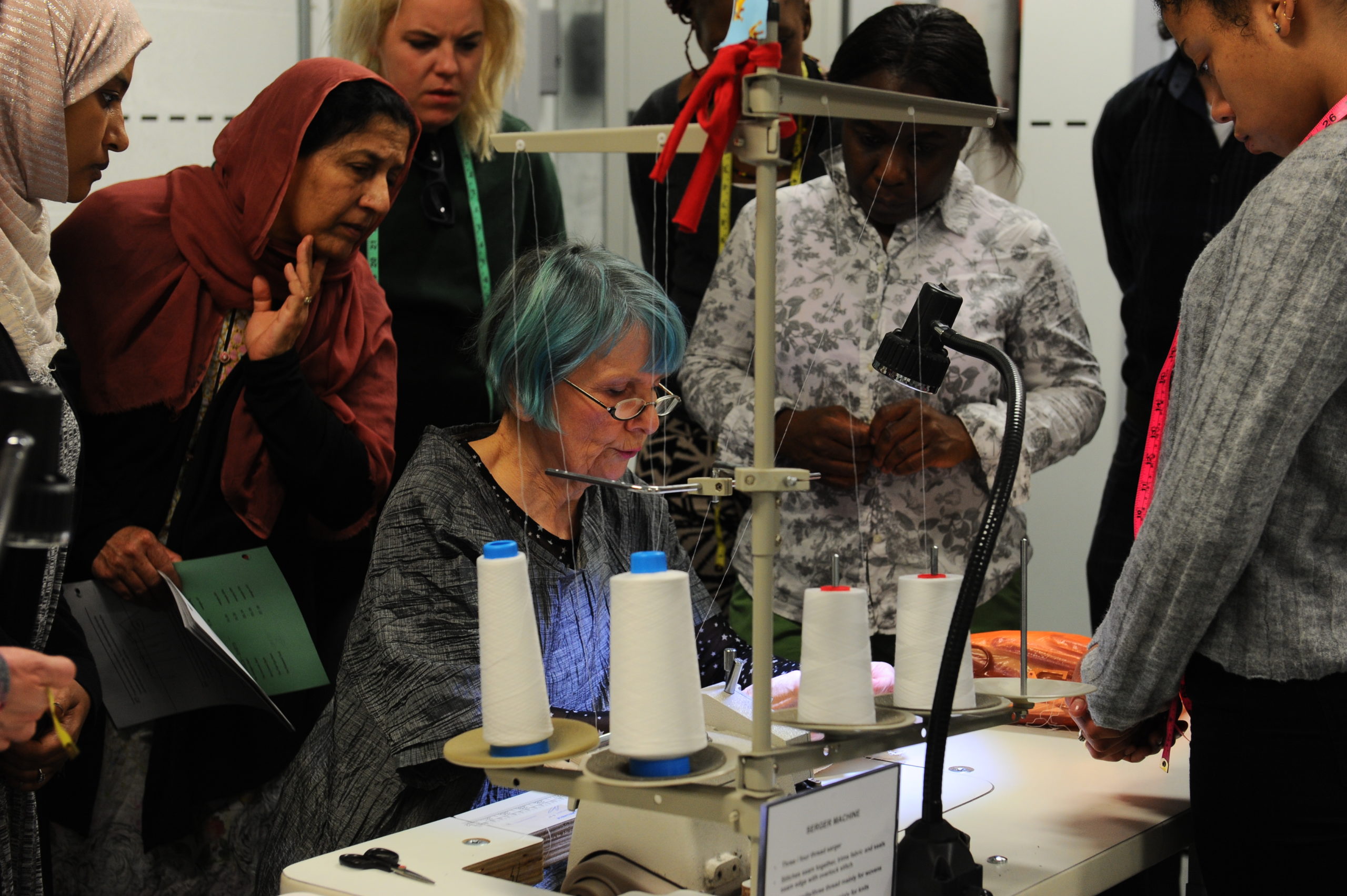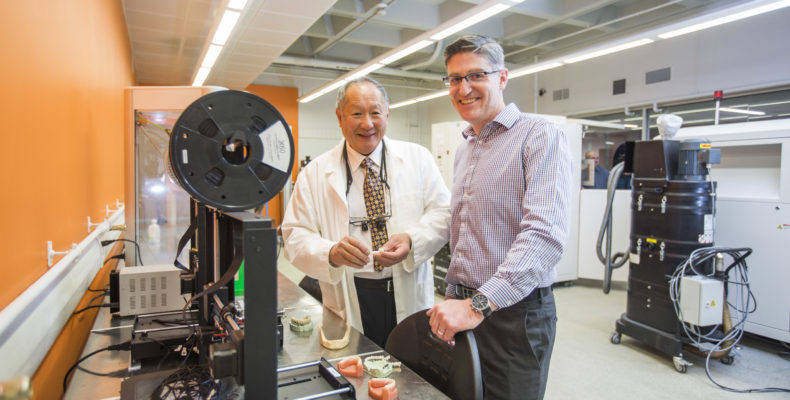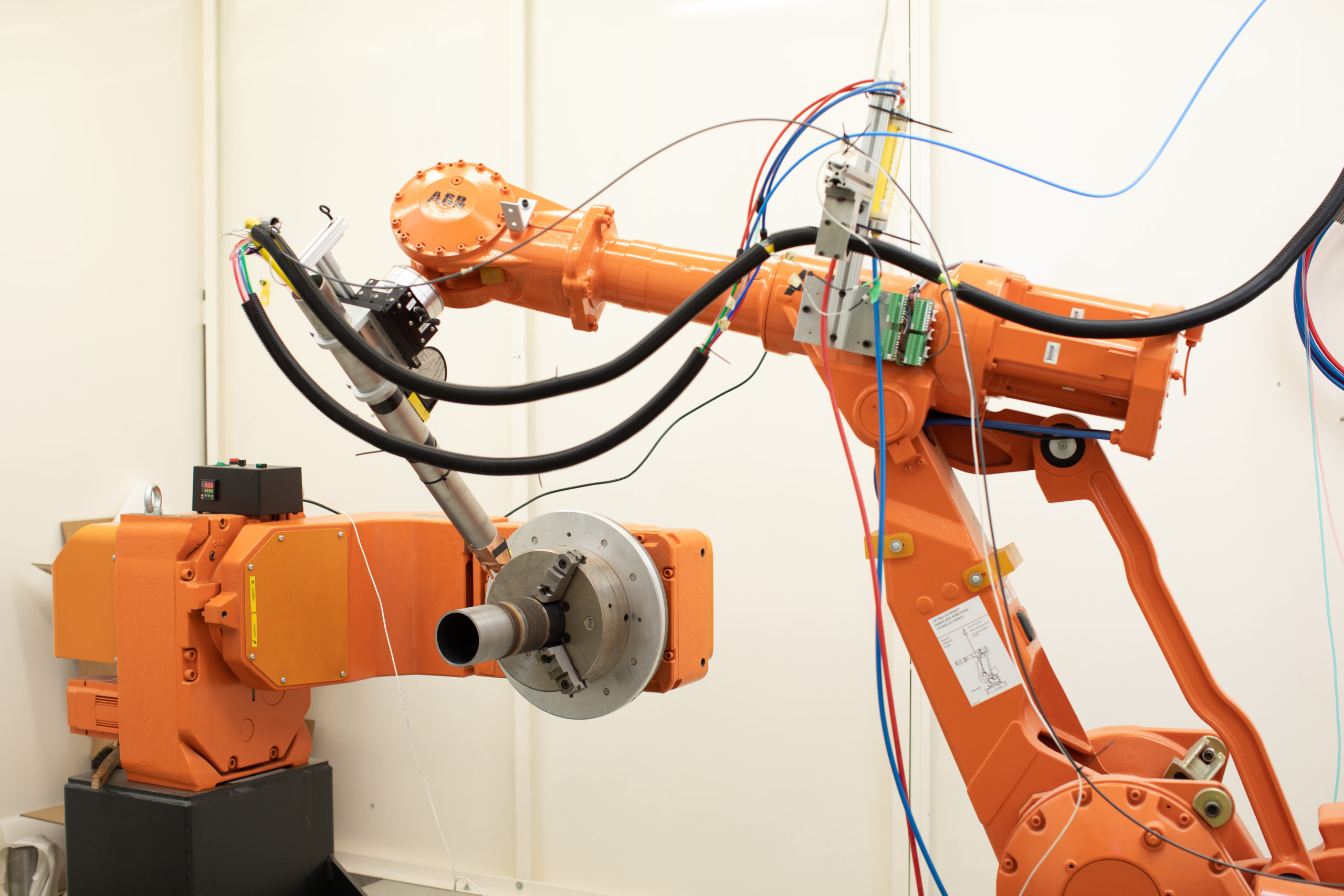-
Headquarters -
1565 N Service Rd E., Oakville, ON, L6H 1A7
-
Year established -
2015
-
NAICS -
Not available
-
Major expansions -
N/A
-
Employees -
2
-
Exports -
N/A
-
Download -
Siemens Canada Engineering and Technology Academy (SCETA)
The Siemens Canada Engineering and Technology Academy (SCETA) is a unique initiative designed to equip engineering and engineering technology students in Canada, and Siemens’ own engineers, with the educational and professional foundation required for successful careers. The goal of the Work Integrated Learning Program (WILP) is to educate post-secondary students on Industry 4.0 concepts such as electrification, automation, digitalization and cloud technology.
In the fall of 2014, executives from Siemens Canada began brainstorming ways to address a significant problem facing their business: the lack of qualified engineers eligible to join the Siemens workforce directly out of university. They were of the opinion that colleges and universities in Canada were behind the game when it came to training their students for the adoption of Industry 4.0. After multiple discussions, Dr. Tom Murad and his team came up with the idea of a Siemens version of a Work Integrated Learning Program (WILP). The goal of the WILP is to educate post-secondary students on Industry 4.0 concepts such as electrification, automation, digitalization and cloud technology. The program has experienced tremendous success since welcoming its first class of students in May 2015, and Siemens Canada just concluded the recruiting of its fourth cohort, which began work on May 1st, 2018.
The Siemens Canada Engineering and Technology Academy (SCETA) is a unique initiative designed to equip engineering and engineering technology students in Canada, and Siemens’ own engineers, with the educational and professional foundation required for successful careers. SCETA houses this WILP Program, which in SCETA terms is called The Dual Education Program. The academy administers other programs as well, such as the Siemens Mechatronics Systems Certification Program, Professional Association Relationship Management, and The Siemens Portfolio: Related Engineering and Technology Topics
The basic idea behind SCETA’s Dual Education Program is to complement students’ university or college educations so that they have the skills required to succeed at Siemens and in the manufacturing industry in general. It works by recruiting students from seven specific post-secondary institutions (4 universities and 3 colleges) who are in their third year of an engineering co-op program or second year of a technologist college program. The selected students spend their two remaining co-op terms at Siemens Canada, participating in the program. These students are hired by Siemens Canada and paid a full-time trainee’s salary for the whole duration of the program, on top of having their post-secondary tuition paid for up to a maximum of two years prior to their graduation. Furthermore, select students are offered full-time engineering or technology-related positions at Siemens Canada after graduation.
While at the academy, students follow a curriculum based on four pillars: soft skills training, business training, advanced technology/engineering training and hands-on mentorship or practical experience. The training is rigorous, and students gain a wealth of knowledge from being taught by experienced Siemens Canada employees and engineers. The typical Dual Education Program class is composed of two thirds university students and one third college students, however all students are put in the same classroom and taught the same material. This contributes to a collaborative learning environment. Due to the ever-changing business and technological landscape, the curriculum is designed as an “engineering project” in progress, in the sense that it is dynamic and always being revised.
Course modules at the academy range from a single day to 4-5 weeks and students are evaluated through tests at the end of each course. The tests are often focused on hands-on skills, which allow students to apply concepts learnt in class in a practical setting. Each student needs to achieve a 70% or higher on the test in order to pass the course, but the average test-scores are normally around 85%, which highlights the quality of SCETA students, as well as, the program itself.
The Dual Education program has proven to be incredibly successful for Siemens Canada. Every student who graduated from the first and second cohorts was hired full-time at Siemens Canada and they are currently in the process of hiring others from the third graduating class. Even more compelling is that many of the graduates are quickly being identified as rising stars within the company, earning promotions and significant levels of responsibility. This success has not gone unnoticed as Dr. Murad’s program has earned him numerous awards, both within the Siemens Company itself and from various levels of government.
The benefits of the program are not restricted to Siemens itself, but extend to many different stakeholders. Students receive a better education and are better prepared for future jobs, postsecondary institutions gain insight into the kinds of skills and education needed for success in the Industry 4.0 environment, and Ontario’s economy benefits from having a more capable workforce. Work Integrated Learning Programs have the potential to both transform the way students are educated and closer align the skills of graduates with the needs of employers in the context of Industry 4.0. This is precisely the goal Dr. Tom Murad and his team had in mind, and so far, it is being accomplished. Due to this success, Siemens will continue to enroll 20-30 students each year in SCETA’s Dual Education Program moving forward.
Another program offered by SCETA is the Siemens Mechatronics System Certification Program (SMSCP). This international certification is available to students through Siemens-certified colleges and universities. These schools integrate 1 or more of the 3 levels of Mechatronics Certificate into their curriculum and/or continuous education certificate courses. Furthermore, Siemens assists in the physical and curriculum requirements needed for these schools to offer the program to their students and send professors/instructors to the Siemens Teknic Academy in Germany to train them on the program methodology. Currently there are 10 universities and colleges across Canada of which 4 – 5 are already participating (Seneca college, Sheridan College, Simon Fraser University, Windsor University) while others are under the process of being certified. This program is offered to students at 2 levels: post-secondary schools and through SCETA (for the Siemens Dual Education Trainees). At the end, students appear for an online Siemens Global exam from Germany in order to successfully complete the program and acquire the certification.
SCETA’s Dual Education Program and its Mechatronics System Certification Program are examples of how Siemens is contributing to the success of advanced manufacturing in Canada. By offering these unique educational initiatives, Dr. Tom Murad and his colleagues are providing the skills and training workers need to successfully navigate the challenges of Industry 4.0. Companies, postsecondary institutions and levels of government would be wise to recognize this and learn from Siemens Canada when tackling these challenges in their own spheres. This will enable Canada’s manufacturing sector to have more skilled workers, better job prospects and will further contribute to the strength of the industry as a whole.
For more information about Siemens Canada Engineering and Technology Academy (SCETA), visit their website.
Published: May 23, 2018

Fanshawe College
Fanshawe’s School of Applied Science and Technology emphasizes the technical skills required for workplace productivity.

FIRST Robotics Canada
FIRST Robotics Canada is a registered charity that connects elementary and high school students with businesses and post-secondary educational institutions by organizing and coordinating robot-building and robo-sport competitions.

George Brown College Fashion Exchange
College’s Fashion Exchange (GBFX) fosters collaboration between fashion educators, industry partners, community organizations, and fashion graduates.

Southern Ontario Network for Advanced Manufacturing Innovation
The Southern Ontario Network for Advanced Manufacturing Innovation (SONAMI) is a network of post-secondary research institutions that have come together, in an effort to grow the quality and quantity of applied research innovation in the Southern Ontario advanced manufacturing cluster.

National Research Council – London
The NRC London facility is part of NRC Automotive and Surface Transportation Research Centre. The organization aims to support the Canadian automotive industry.